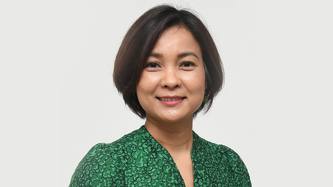What is it?
The Singapore authorities want to change the country’s Banking Act to tighten the screws on the legislative and regulatory framework governing banks. Ouch, that hurts.
Who dreamed it up?
The Monetary Authority of Singapore, the country’s central bank and financial regulator. It released a consultation paper on the proposed changes on July 31, and gave the industry until August 31 to respond.
What are its main provisions?
The MAS says it “seeks to strengthen prudential safeguards, facilitate risk-based supervision, provide banks with greater operational flexibility, and update banking regulations”.
There are 32 “key” proposals, including:
- “Revision of methodologies for limiting concentration risk and related party exposures.” Banks will have to ensure their prudential limits to such risks and exposures remain relevant and are in line with international best practice. For example, they will have to apply limits on all exposures to a single counter-party or group of related counter-parties posing a single risk, instead of just on credit exposures as is presently the case.
- “Establishment of an asset maintenance framework for foreign bank branches.” Foreign banks will have to maintain a minimum of S$5m ($3.17m) of assets in Singapore so that if they fail they will be better able to meet the claims of depositors.
- “Enhancement of MAS’s role in bank resolution.” The MAS will have wider powers to resolve bank failures – such as forcing the sale of a failed bank’s business to another bank.
What’s in the small print?
Regulations deemed “no longer relevant and necessary” will be removed, such as the requirement for banks to maintain a statutory reserve fund – definitely a plus-point.
What does the industry say?
The Association of Banks in Singapore is generally supportive, and has been sweetened by the fact that the MAS involved it in earlier consultations. Mrs Ong-Ang Ai Boon, the ABS’s director, says the new regulations are a move from a one-size-fits-all, rules-based approach towards a risk-based approach.
But she has some concerns. “There will inevitably be an impact on costs, such as the introduction of the asset maintenance framework for foreign banks,” she says.
“Banks will also have to take into account their own self-governance framework bearing in mind the prudential considerations. We need to await further guidance notes from MAS to assess the impact on the implementation process.”
Ngai Kin Ng, a director for banking consultants Mercer Oliver Wyman in Singapore, says: “These proposed amendments will help to increase the soundness of the financial system and enhance public confidence.”
How much will it cost?
Not sure. But in addition to the S$5m minimum asset requirement for foreign banks, there will be “other cost and timing concerns which may affect banks differently depending on their individual readiness [in terms of systems, technology and level of skilled resources needed] to implement the new compliance measures,” says Mrs Ong.
What do the regulators say?
The MAS says the regulations need to be updated to cope with recent changes in the domestic banking market, such as “greater competition”, the “growing complexity of banking activities” and the “increasing cross-border nature of banking business”.
The law of unintended consequences
With the move to a risk-based approach, less well-run banks will be worse off. They may have to reduce their risk appetite and scale back operations.
Could we live without it?
Yes – but we should be better off with it.
Rating: 4
Rating scale:
5 = Essential;4 = Useful; 3 = Neutral; 2 = Unnecessary1 = Waste of time











